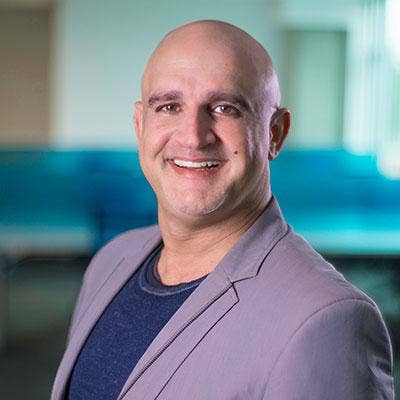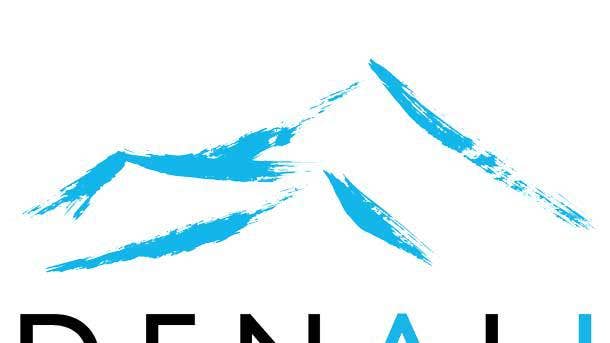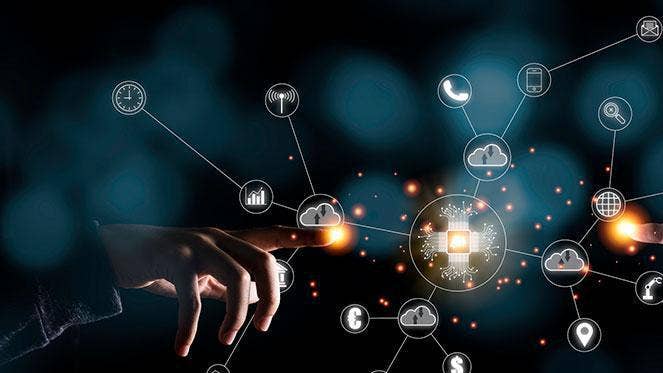Denali Advanced Integration CEO On 2022 Outlook And Why ‘No One Technology Is Actually The Full Solution’
‘All of these things are really opportunities for people like us who are problem solvers to figure out how do we bridge the challenge of adopting technology, enabling technology inside your enterprise, making it available to your employees, to your customers. And then we come in and we do the work,’ says Denali CEO Majdi Daher.

The Best Ideas Come From Customers
Denali Advanced Integration in June will be celebrating its 30th anniversary. The Redmond, Wash.-based solution provider has seen a lot of changes since it was formed, but has continued to grow and serve clients by keeping things simple. The company was started by the three brothers who continue to run it, and have done so successfully without taking private investment and without making an acquisition since 2001.
Denali CEO Majdi Daher, in a recent discussion with CRN, said his company has found success by focusing on enterprise accounts where its engineers can go deep into understand clients‘ needs and build custom solutions based on that understanding. This, Daher said, is important because enterprises have complex and changing needs that can be fulfilled only with deep and long-term relationships.
“Our approach to solving problems is, we come in and we partner with the customer, the owner of the challenge,” he said. “And at the end of the day, we always ask, why do you want to solve the problem? Because if you find out why somebody wants to solve the problem, it‘s much easier to get to their solution.”
Daher said that his company has done well by seeing opportunities, not challenges, when talking with clients. “One of my big sayings is, ‘Never waste a good crisis,’” he said. “Every time somebody brings a challenge to me, I‘m like, ’Oh my God, there is an opportunity somewhere. Let‘s just go find out what that looks like.’”
For a look at how Denali has learned to take care of customers, and a look at how the company is using digital transformation to continue doing so into the future, click through the slideshow.

How would you describe Denali?
You mean the company, not the mountain, right? The best way I can describe it to customers or even people who ask me on airplanes what I do for a living is, we‘re a company that’s primarily focused on finding solutions to complicated problems. Let‘s just start with that. And we do that for very, very large customers. Enterprises. Their problems are extremely complex, demanding. So we’re not an IT shop that just comes in and takes a technology, know it better than the person who made it, and go sells to the customer. There‘s a lot of people who do that really well. We do that, too, as well. But if you look at the history of our company for the last 30 years—this June will be our 30th year in business—that’s really how we establish our business.
And I‘ve always said our best ideas come from our customers. Whether it’s the customer who came to me and said, ‘Hey, I need you to build a global network to help me,’ or the customer who said, ‘Hey, I have these handheld devices from before mobility existed, I want you to manage it,’ or another customer who said, ‘Hey, I want you to build this mobile software for me because I’m in the telco business, and I don‘t know how to create software.’ And that‘s really how we’ve always started our business. So Denali in a nutshell solves problems.

In the last year, how have the problems that you want to solve changed?
Well, actually, they didn‘t change. They just became more complicated. And the dependency of our customers on us finding quick solutions fast and basically deploy them, became critical to their survival, for lack of a better term. Because for the last couple of years, businesses have changed so much. If I told you two years ago we would be doing the things that we’re doing today, you would be like, ‘You’re crazy. There‘s no way!’ And folks have always said, reality actually is worse than fiction. You know it‘s actually incredible. And that’s really what it feels we‘ve been going through the last couple years.
We’re faced with challenges. Who would’ve thought that you can‘t buy a PC or a laptop. ... Who would’ve thought technology could become so unavailable. Who would’ve thought that you cannot find screens, Samsung or Dell or whatever. You can‘t find screens? Those things, you go to Best Buy and expect hundreds available. Really, nobody thought about this. So the speed of which the challenges have come at us the last couple of years are just unfathomable. And there’s no business continuity plan for such a doom. Everybody plans for a shortage, or something is not available, or the price changes. But nobody thought that the world would be where it was the last two years.
So that‘s really what we’ve been dealing with. And we did well because our approach to solving problems is, we come in and we partner with the customer, the owner of the challenge. And at the end of the day, we always ask, why do you want to solve the problem? Because if you find out why somebody wants to solve the problem, it‘s much easier to get to their solution. We love engineers. I love engineers. But engineers are so attracted to complicating things. And to me, the ultimate sophistication is simplicity. The simpler things are, the more sophisticated the solution is, if that makes any sense. That’s the beauty of the iPhone. So simple, yet it‘s so sophisticated. So that’s really what we been dealing with.

Going into 2022, are we seeing the same challenges, or are things changing?
I believe humans never go back. I don‘t think you’ll ever walk into a restaurant and not have a digital option to pay or look at a menu. I don‘t think people are going to go back to the big paper menus. I don’t think people are going to stop ordering foods online to their home. I don‘t think people are going to decide, ’Everybody, let‘s go back to the office. We’re going to work from the office right now.‘ Because humans, once they discover a new way, they make it better, and then they adopt it and embrace it, and that’s how progress moves forward. So we have fully embraced the new way: remote workers, the visual world, how customers want to access and see their technology, implement their technology, use technology to enable their workforce to accommodate all these things. So the opportunities ahead of us really are massive. That‘s how I see the challenges.
Obviously, COVID is not going anywhere. I think it‘s going to be with us, and we just have to learn how to live the way we are going forward and embrace it. You know, I’m a big believer that there are no challenges, only opportunities. One of my big sayings is, ‘Never waste a good crisis.’ Every time somebody brings a challenge to me, I‘m like, ’Oh my God, there is an opportunity somewhere. Let‘s just go find out what that looks like.’
If you think about the amount of digitization that happened in the last two years, it would normally have taken us 10 years to do that. Satya [Nadella, Microsoft CEO] (pictured) actually said at the end of 2020 that in two months the world had digitized what was going to take three years. Think about how we use communication tools and video and the adoption of video. For people like us in technology, this is not a new thing. But go anywhere, and people are using video. It became a new norm. Even FaceTime. Think about it. People are using FaceTime right now. It‘s heavily used. That’s why telcos are just scrambling to get to 5G because their 4G networks are just getting hammered. Right? Data and video have become the new norm. How many times do people get on a call and somebody is not on video and everybody is like, ‘What the heck you’re doing?‘
So all of these things are really opportunities for people like us who are problem solvers to figure out how do we bridge the challenge of adopting technology, enabling technology inside your enterprise, making it available to your employees, to your customers. And then we come in and we do the work.

How do you find solutions to all that?
Everybody refers to us by the name Denali. But I always say, Denali is our name and advanced integration is what we do. So that‘s really the full name of the company, Denali Advanced Integration. It’s ‘advanced integration’ because no one technology is actually the full solution.
Every manufacturer tries to tell you how their trinket or their widget is going to solve all your problems. That‘s not true. It’s how that trinket or widget exists in an ecosystem of technology that enables you to actually get a solution. You think about this video call that we‘re having today. We’re having it over WebEx. Well, WebEx is the media, the platform. But there is a screen, there is an internet behind it, here is a camera behind it. There is your PC. So there is an ecosystem of manufacturers, technology providers, that has to come together to provide that solution. And that‘s the advanced integration part of our business. And that continues to be the opportunity.
If technology didn’t exist and COVID hit, and you had to be in your home, people would’ve starved. When the flu pandemic hit in 1918, the world was not as connected. But today the way the world is connected and how we were told to sit in your house and hide, without technology, it would‘ve been isolation. It would’ve been famine. It would‘ve been an absolute catastrophe. And I’m a big believer that technology enabled humanity to survive. I know that‘s a big word, but I absolutely believe that if technology did not exist and we were not as mature, humanity would suffered so much more.

As you look at 2022, is there a particular technology that you see that your customers may adopt that they may have never considered before?
Well, the biggest one obviously is the hybrid workforce and the enablement of that. I think companies and organizations are struggling, because you have the old way trying to protect its way, and you have the new way trying to make its way. And it‘s going to be a flush because organizations are going to continue to think the way they did their business was the right way. Especially if they were super successful. I mean, you look at Apple or Google or Microsoft or Amazon. Amazing organizations. Initially they said, ’Come back to the office.‘ And employees simply said, ’What are you talking about—and I fully agree with the employees—what are you talking about? We‘re extremely productive. We’re actually being overworked.‘
If you think about it, during COVID, what else did people do besides work? There‘s nothing else to do. You couldn’t go on a holiday. You can‘t go on a vacation. You can’t go out to dinner. So what do you do? You just work. So to me, the remote worker or the hybrid work environment is going to continue to prosper regardless of what happens, even if COVID goes away. And that opens up totally brand new opportunities and challenges to organizations and employees, because now the workforce pool has expanded dramatically for them. Those enterprises that are going to be smart enough to capitalize on that opportunity and remove the old way of thinking are really going to gain because now the entire world becomes your workforce.

How important is digital transformation to Denali and your clients?
Solution providers, companies like us, we have to digitize. So the value that we bring to our customers, we have to be able to digitize that and make it available in a platform instead of a physical world. So one of the things we‘ve done, for instance, is we’ve digitized our supply chain processes, and we created this product called RAMP, or rapid asset management platform, where we basically track inventory and track orders all the way back to the manufacturer. And customers want that visibility because they want to know where their stuff is and when it‘s showing up.
Historically, we‘ve done that with humans. But because of the complexity and the demand and how customers really became risk mitigation, we had to digitize them. So we literally came up with a platform in the last six months that going to go to production that digitizes one of the big values we provide to our customers. And then once you digitize something, obviously scale becomes much easier. And then availability of that platform becomes so much more scheduled. So you turn it into a business.
RAMP sounds like the kind of product that you could possibly sell to your peers. Is that something you'd want to do, or is that something you want to keep yourself?
I‘m a big believer in the channel. I’ve been in the channel for 30 years now. I have a ton of my friends. Everything I know, everything I‘ve learned, is in the channel. So I have a huge affinity for the channel. And obviously, if I can help my peers and my friends, absolutely. And if I can make money in the process, I’m a capitalist at the end of the day, so why not?. But software is definitely something we‘re very interested in, and we’ve put a big team in place. For the last three years, we‘ve developed some cool stuff. But we never really took to market. This one, we might actually do that. It’s built for the enterprise, so it needs a big engine behind it. But that‘s possible something we might build.